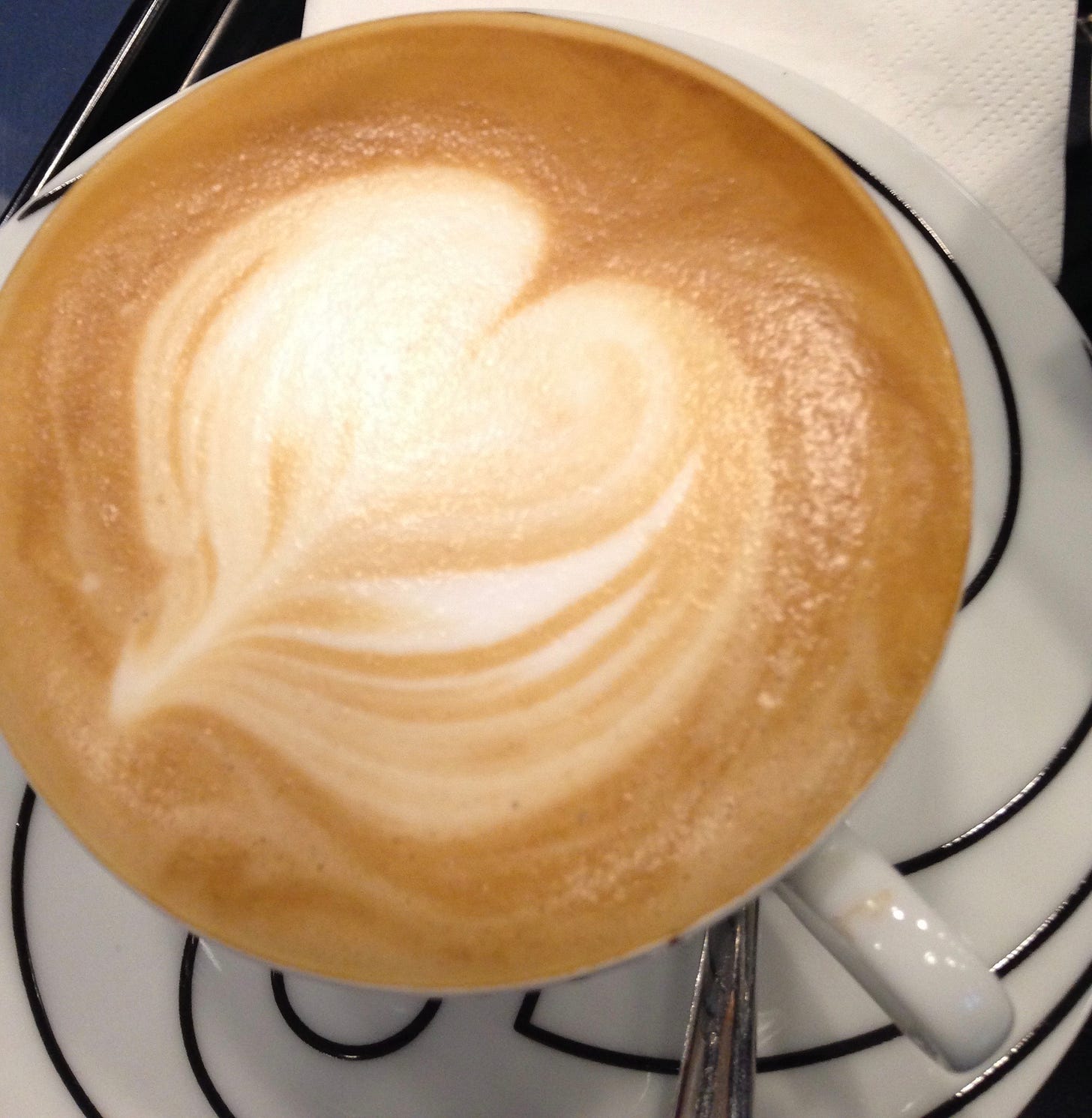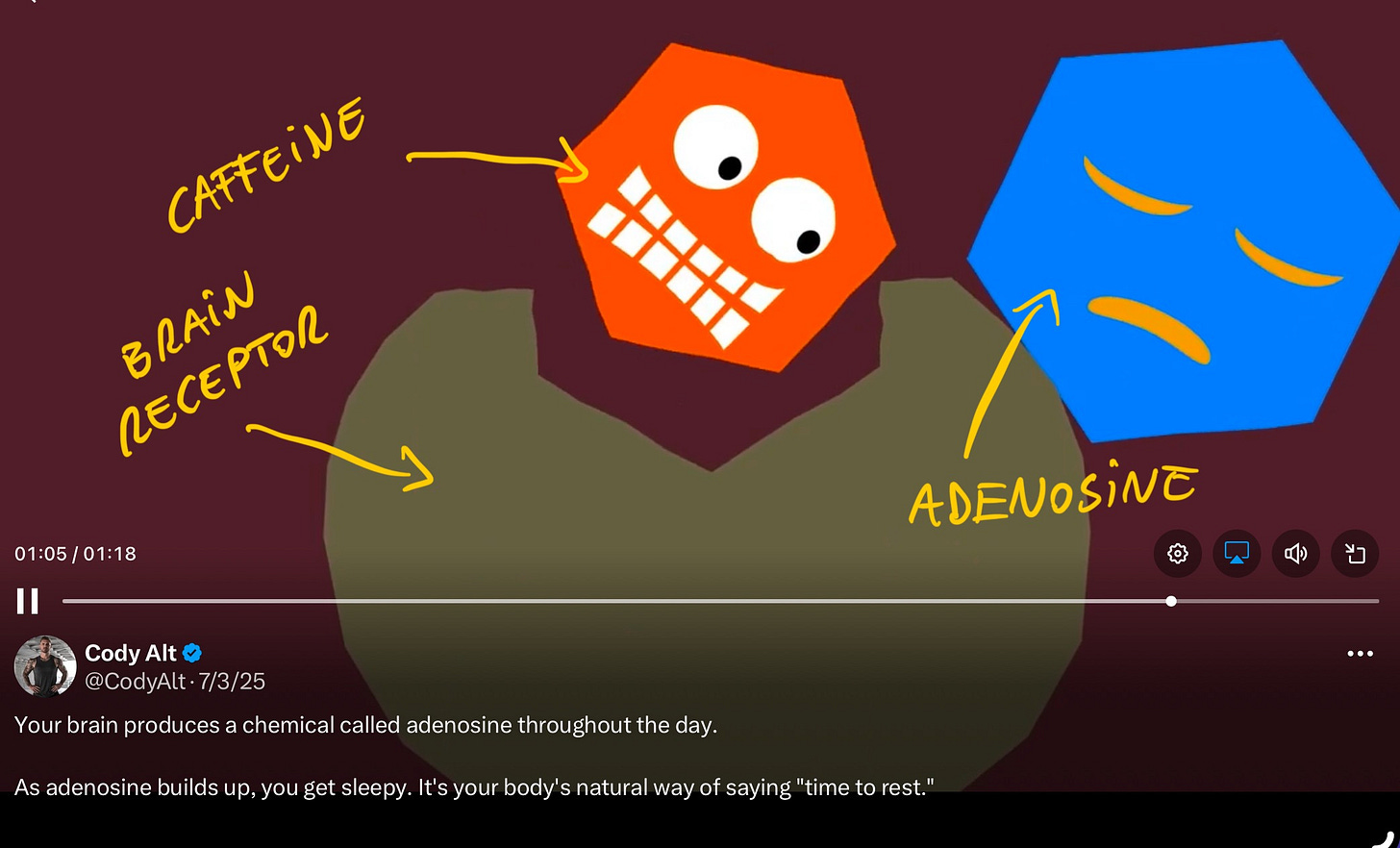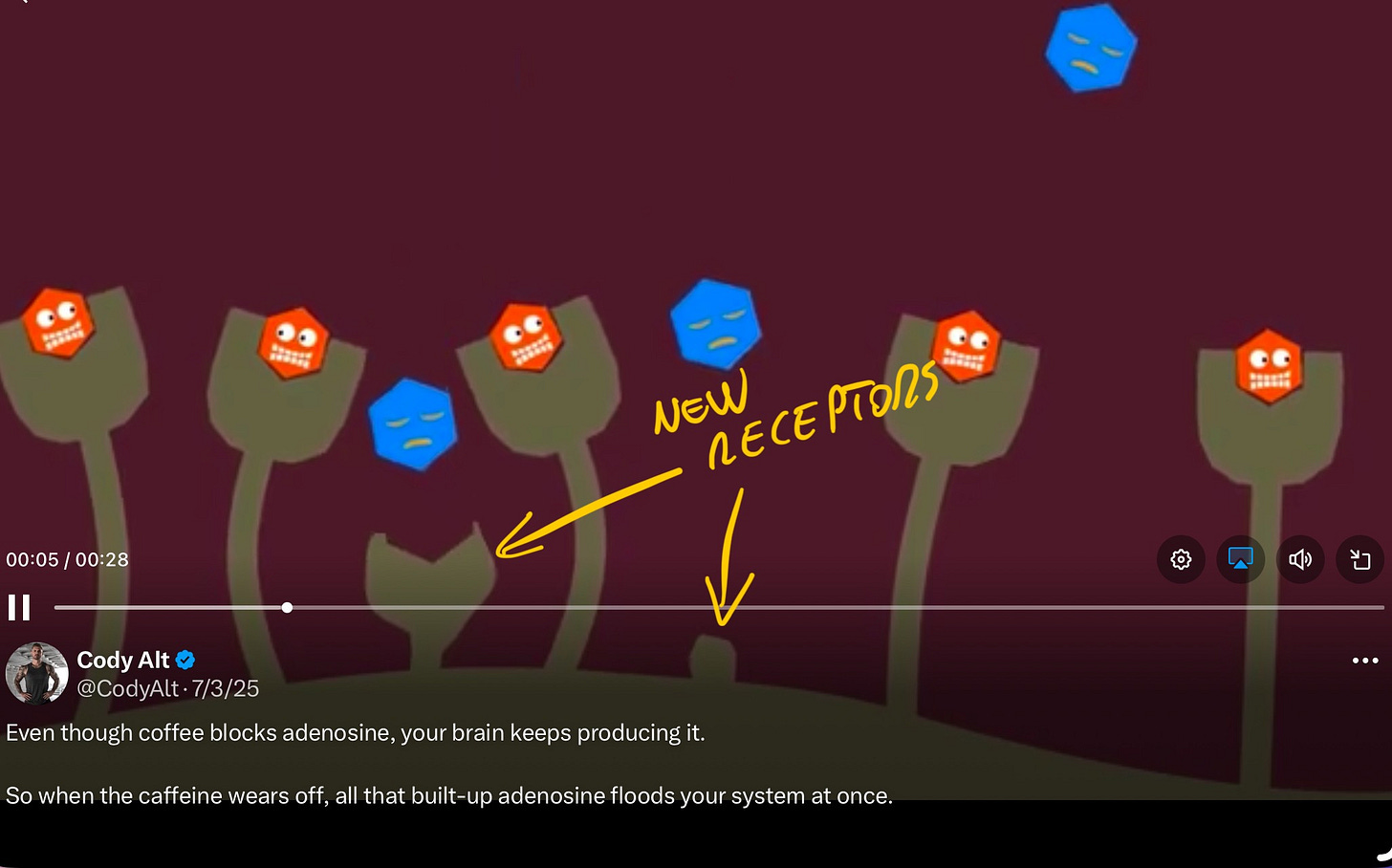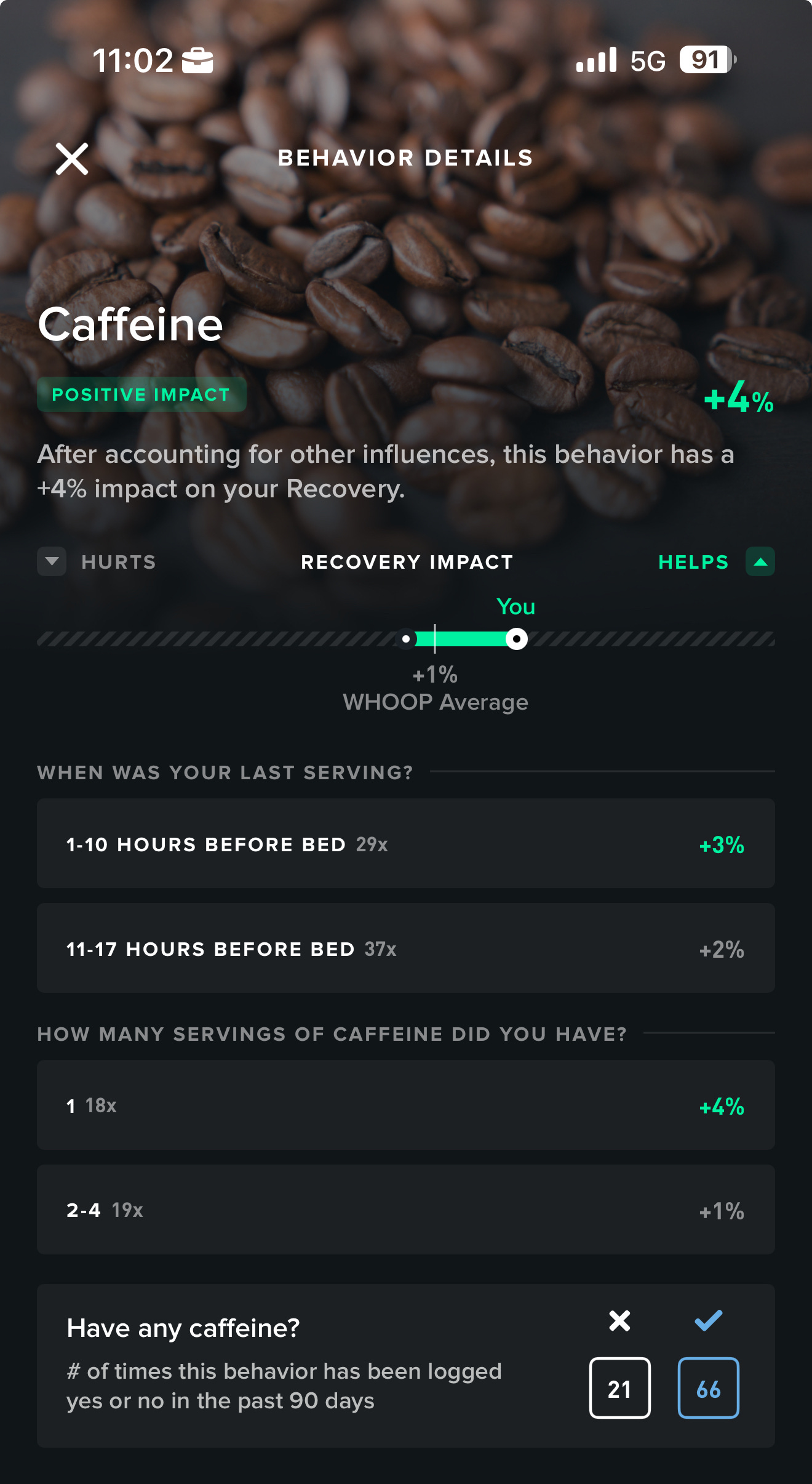Caffeine’s Double Shot: Unpacking the Highs and Lows of Espresso Addiction
From Boosted Brains to Restless Nights—My 20-Year Dance with Coffee’s Power
Abstract
Coffee, particularly espresso, is more than a beverage in Italy—it’s a cultural cornerstone woven into the fabric of daily life. This article explores Italy’s deep-rooted obsession with coffee, tracing its historical origins from 17th-century Venice to the revolutionary invention of the moka pot in 1933, which democratized espresso. Beyond its social significance, coffee’s effects on energy, attention, sleep, heart, and digestion are examined through a blend of scientific insight and personal experience. While caffeine acts as a potent cognitive enhancer by blocking adenosine receptors, its benefits hinge on strategic use, with overuse leading to dependency, digestive issues, and disrupted sleep. Italians’ preference for strong, quick espresso reflects their lifestyle, yet the article reveals a love-hate relationship with coffee’s stimulating allure. It concludes with practical advice for harnessing coffee’s benefits while minimizing its downsides, offering a nuanced look at a ritual that defines Italian identity
Introduction
If there’s one thing we Italians are obsessed with, it’s coffee. The famous espresso, as well as the cappuccino, are deeply ingrained in the customs and habits of all Italians.
They’re not just the foundation of the classic Italian breakfast, but they’re also the perfect excuse for a work break, a pause, a quick meeting… “Let’s meet up for a coffee on the fly.” The speedy espresso reigns supreme. Starbucks took a while to enter Italy—it was afraid it wouldn’t succeed. Nothing could be further from the truth. For Italians, coffee is espresso. The oversized Starbucks drink? Well, that’s just Starbucks, that’s it. It gets consumed, sure, but in different contexts.
Italians are “fixated” on coffee because it’s an integral part of their culture—a daily ritual that goes beyond merely drinking a beverage. This passion has historical, social, and even economic roots.
The coffee tradition in Italy began around the 17th century when coffee, originally from Ethiopia, started spreading to Europe through trade with the Arab world. Venice, one of the main commercial ports of the time, was among the first Italian cities to import it, around 1600. Initially, it was a luxury for the elite, but over time it spread to all social classes. In 1683, the first “caffè” (meaning a café or coffeehouse) opened in Venice, and from there, bars and “coffee shops” became places for meeting, discussion, and socializing.
The real cultural leap, however, came with the invention of the moka pot by Alfonso Bialetti in 1933, which made espresso accessible at home. The quick and intense espresso perfectly suits the Italian pace of life: a short but high-quality break. Plus, coffee became a symbol of conviviality—offering it is an almost mandatory gesture of hospitality.
This “fixation” also comes down to taste: Italians prefer a strong, concentrated coffee, often downed standing at the counter, without diluting it like in other cultures (think American coffee). It’s a codified habit: espresso in the morning, cappuccino only until noon, maybe a “corretto” with grappa in the afternoon. Today, it’s a pillar of Italian identity—so much so that Italian espresso is a candidate for UNESCO heritage status!
Okay, but in the end, is coffee good or bad for you?
Let me tell you my love-hate story with coffee over the past twenty years, during which I’ve discovered its positive effects but also quite a few negative ones.
Discussion
Coffee is stimulating thanks to caffeine, a substance that acts on the central nervous system, boosting alertness and reducing the feeling of tiredness.Is it addictive? Partly, yes, though it varies from person to person.
Personally, I’ve noticed it creates a mild physical dependence (if I stop drinking it, I get a headache for a couple of days) and a strong psychological dependence. There are moments when, if I’m used to having it, I don’t know what to do without it. It’s a ritual that makes me feel good, giving me a sense of familiarity and comfort.
At the same time, it tends to cause stomach acidity and generally makes me less aware of my tiredness or the effects of foods that aren’t exactly healthy for my body.
On the other hand, it works wonders when I want to enjoy a moment or simply need an extra boost.
In short, if you’re aiming for peak performance, I think coffee is a good ally—but only if you use it strategically. Let’s see how.
Effects on Energy and Attention
Coffee is a cognitive enhancer. The “why” lies in its chemical mechanism: caffeine doesn’t just counteract tiredness; it also promotes greater neuronal activity.
It acts on the brain, not the body. If you’re tired, you’ll stay tired—your brain just gets inhibited and doesn’t notice it.
Caffeine affects the brain by blocking adenosine receptors, a substance that promotes relaxation and sleepiness. When adenosine is inhibited, there’s an increase in the activity of neurotransmitters like dopamine and norepinephrine, which improve alertness, attention, and reactivity.
So, yes, it works!
However, the effect depends on the dose and individual tolerance. Too much coffee (over 400-500 mg of caffeine per day) can instead cause anxiety, restlessness, or a drop in cognitive performance.
And that’s not all! It works great if you’re not a regular coffee drinker and you need a performance boost—drink a good coffee or any beverage with a decent amount of caffeine.But if you’re a habitual drinker, say about 200 mg of caffeine a day (3 espressos or a couple of American coffees), your brain has already adapted and your baseline sensitivity has changed. Even though adenosine is inhibited, your brain creates more receptors, and the sensitivity becomes minimal.
In practice, if you’re a regular drinker, it doesn’t work!
To get an energy boost, in conclusion: if you don’t love drinking coffee every day, only drink it when you need it. If you do love drinking it daily, keep the amount as low as possible and double it on the day you need peak performance.
Beware! Coffee shouldn’t be drunk when you feel tired, but when you’re at your best and want an extra push.
I know, it’s counterintuitive because most of us do the opposite—we drink more on days when we feel more tired.Result: as soon as the effect wears off, you crash, need even more, and spend the day on a rollercoaster. Better to sleep for two hours and work afterward. Trust me.
Effects on Sleep
The effect of caffeine halves between 3 and 6 hours after consumption, depending on your metabolism speed. Fun fact: smokers metabolize it much faster, usually within 3 hours!
In practice, if you drink an espresso with 70 mg of caffeine at 2:00 PM:
• After 5 hours (7:00 PM), about 35 mg remain.
• After another 5 hours (midnight), about 17.5 mg, and so on.
The stimulating effects (alertness, energy) tend to fade before the full half-life, often within 3-6 hours of consumption, but traces of caffeine can still affect sleep beyond that, especially if you’re sensitive. So, on average, 5 hours is a good estimate for the pharmacological half-life.
In other words, if you want to sleep well, avoid coffee after 2:00 PM. Otherwise, the overall quality of your sleep will be compromised, even if you don’t notice it. It typically reduces the duration of deep sleep and shortens REM phases.
In my case, if I have it after 3:00 PM, I really struggle to fall asleep. But—here’s the kicker—if I have it earlier, my recovery the next morning is usually 4% better than on days when I didn’t drink coffee, a sign that I rest better! (See insights from my Whoop below.)
Effects on the Heart
Caffeine stimulates adrenaline production, which speeds up the heartbeat. And obviously, the effect increases with the dose.This is why, in sensitive individuals, it can lead to palpitations or arrhythmia.That’s my case if I drink too much, especially when I’m tired. If you ever feel a caffeine-induced palpitation, know that they’re generally benign and nothing to worry about—but they’re definitely a tangible sign of how this stimulant affects your body and heart rate.
Effects on Digestion
Coffee has several effects on the digestive system, both positive and negative, depending on the amount consumed, individual sensitivity, and pre-existing conditions.
Coffee, even decaf, stimulates peristaltic movements in the intestines. This happens because it contains compounds (like chlorogenic acids) that increase the production of gastrin and cholecystokinin, hormones that speed up gastric and intestinal motility.
However, coffee also increases gastric acid production. Caffeine and other coffee compounds (like N-alkanoyl-5-hydroxytryptamide) stimulate the stomach’s parietal cells to secrete more hydrochloric acid. This can aid digestion but also irritate the gastric mucosa.In those predisposed, this effect can worsen gastroesophageal reflux or gastritis, causing heartburn.
And I know this well because, due to frequent flights (if you haven’t read it, I recommend my article on flying) and food from very different cuisines, I tend to suffer from it.
That’s why I’ve decided to avoid coffee and only drink it on rare occasions when I’m not tired and need an extra cognitive boost.
Conclusions
Italy’s fixation with coffee, epitomized by the espresso, is a testament to its role as a cultural ritual and a daily necessity, steeped in history and tradition. From its introduction in Venice to its widespread accessibility via the moka pot, coffee has shaped social interactions and personal habits across the nation. Scientifically, caffeine proves a reliable ally for boosting alertness and cognitive performance by inhibiting adenosine, but its efficacy diminishes with habitual use as the brain adapts by increasing receptor sensitivity. My twenty-year journey with coffee reveals its dual nature: a comforting boost when used sparingly, yet a source of physical dependence, stomach acidity, and sleep disruption when overindulged. For optimal benefits, coffee should be consumed strategically—not as a crutch for exhaustion, but as a spark for peak performance. Regular drinkers should keep intake low and reserve higher doses for critical moments, while avoiding it after 2:00 PM to protect sleep quality. Ultimately, coffee remains a powerful tool and a cherished tradition, but moderation and timing are key to balancing its pleasures with its pitfalls.







